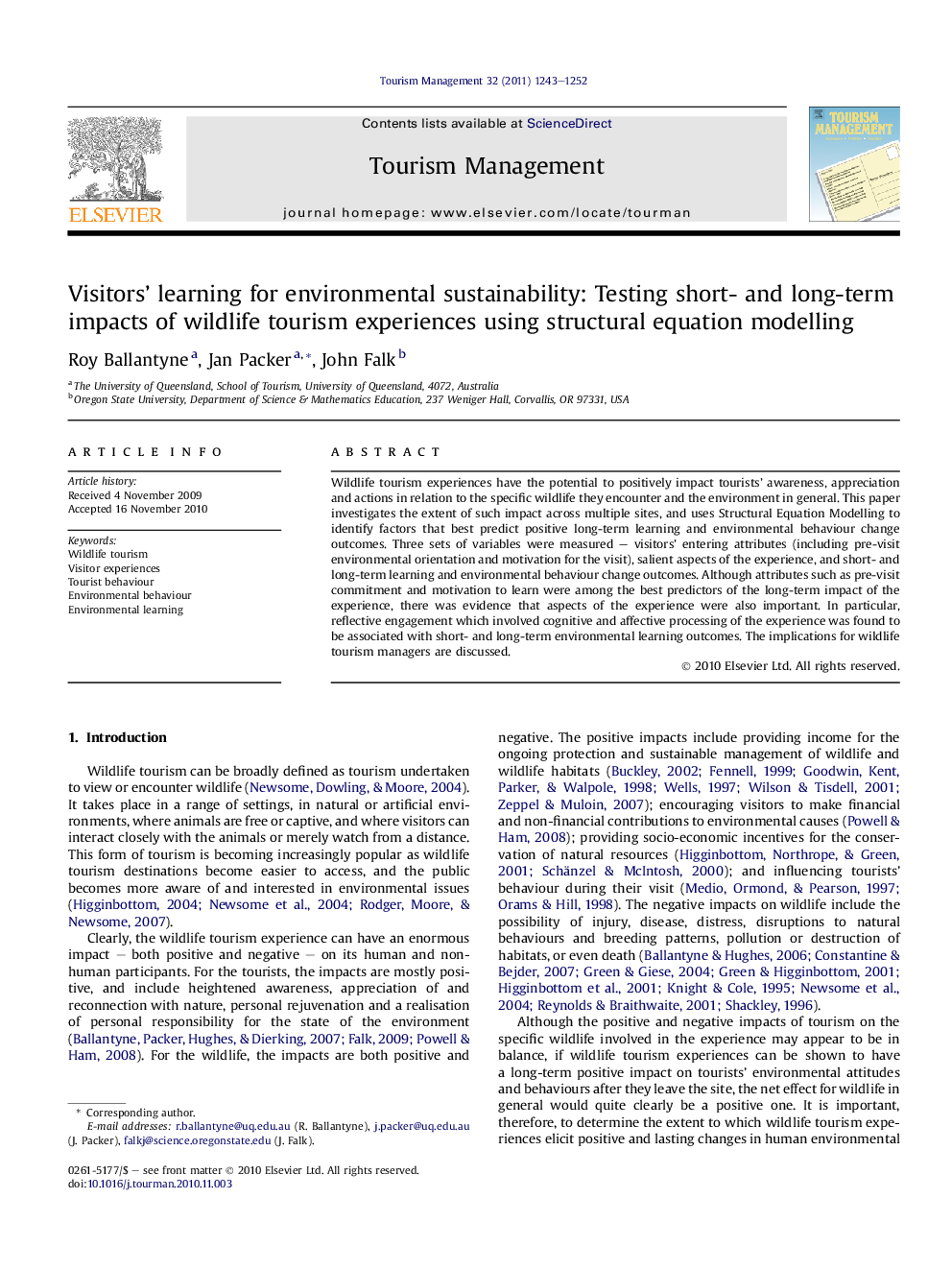| Article ID | Journal | Published Year | Pages | File Type |
|---|---|---|---|---|
| 1012645 | Tourism Management | 2011 | 10 Pages |
Wildlife tourism experiences have the potential to positively impact tourists’ awareness, appreciation and actions in relation to the specific wildlife they encounter and the environment in general. This paper investigates the extent of such impact across multiple sites, and uses Structural Equation Modelling to identify factors that best predict positive long-term learning and environmental behaviour change outcomes. Three sets of variables were measured – visitors’ entering attributes (including pre-visit environmental orientation and motivation for the visit), salient aspects of the experience, and short- and long-term learning and environmental behaviour change outcomes. Although attributes such as pre-visit commitment and motivation to learn were among the best predictors of the long-term impact of the experience, there was evidence that aspects of the experience were also important. In particular, reflective engagement which involved cognitive and affective processing of the experience was found to be associated with short- and long-term environmental learning outcomes. The implications for wildlife tourism managers are discussed.
